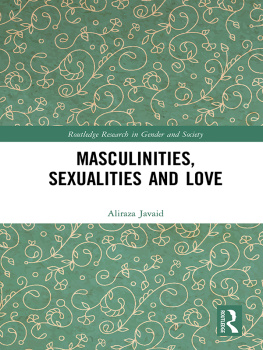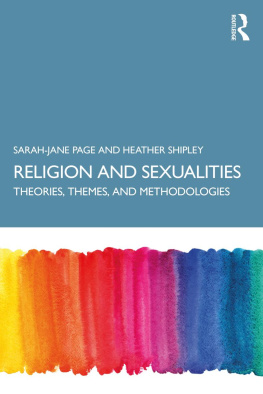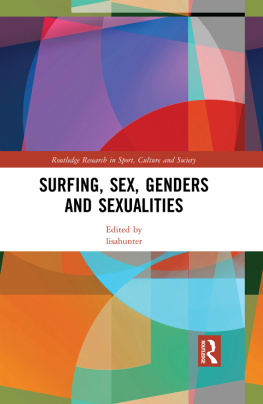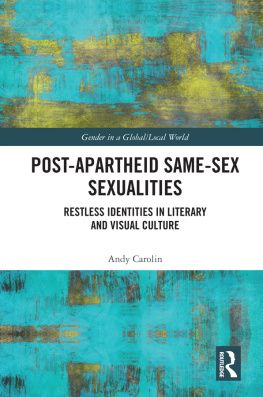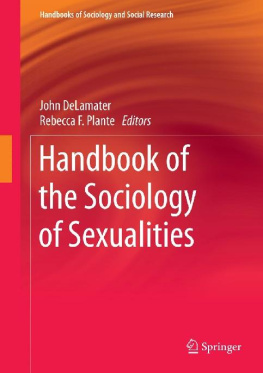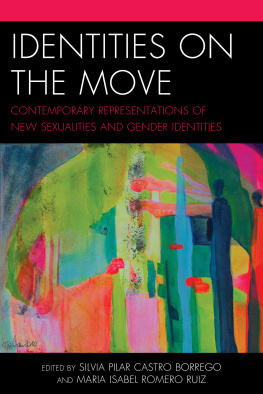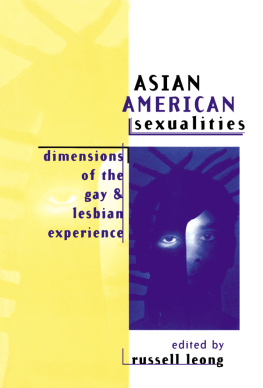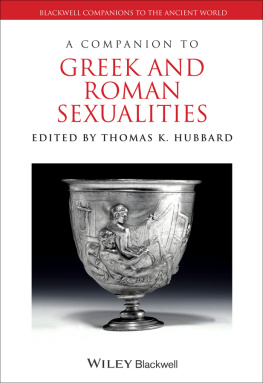SAGE Publications Ltd
1 Olivers Yard
55 City Road
London EC1Y 1SP
SAGE Publications Inc.
2455 Teller Road
Thousand Oaks, California 91320
SAGE Publications India Pvt Ltd
B 1/I 1 Mohan Cooperative Industrial Area
Mathura Road
New Delhi 110 044
SAGE Publications Asia-Pacific Pte Ltd
3 Church Street
#10-04 Samsung Hub
Singapore 049483
Megan Todd 2021
First published 2021
Apart from any fair dealing for the purposes of research or private study, or criticism or review, as permitted under the Copyright, Designs and Patents Act, 1988, this publication may be reproduced, stored or transmitted in any form, or by any means, only with the prior permission in writing of the publishers, or in the case of reprographic reproduction, in accordance with the terms of licences issued by the Copyright Licensing Agency. Enquiries concerning reproduction outside those terms should be sent to the publishers.
Library of Congress Control Number: 2020935621
British Library Cataloguing in Publication data
A catalogue record for this book is available from the British Library
ISBN 978-1-4462-7428-6
ISBN 978-1-4462-7429-3 (pbk)
Editor: Natalie Aguilera
Assistant editor: Eve Williams
Production editor: Katherine Haw
Copyeditor: Audrey Scriven
Proofreader: Jill Birch
Indexer: Megan Todd
Marketing manager: George Kimble
Cover design: Francis Kenney
Typeset by: C&M Digitals (P) Ltd, Chennai, India
Printed in the UK
At SAGE we take sustainability seriously. Most of our products are printed in the UK using responsibly sourced papers and boards. When we print overseas we ensure sustainable papers are used as measured by the PREPS grading system. We undertake an annual audit to monitor our sustainability.
About the Author
Megan Toddis Senior Lecturer and Course Leader in Sociology at the University of Central Lancashire. Her research focuses on sexualities, gender and violence; she has published on issues relating to intimate partner violence, ageing, health, feminisms and homophobic and misogynist abuse online. Megan has been involved in a range of research projects, including LGBT+ domestic abuse service users in Lancashire. More recently, she is developing work on universities management of their LGBT+ heritage. She has been teaching sociology in Higher Education for nearly two decades, prior to which she taught English literature at secondary school.
Acknowledgements
This book was completed whilst at the University of Central Lancashire and I would like to extend my gratitude to my understanding colleagues there. Thanks too, to all my undergraduate and postgraduate students, who have been consistently inspiring. The initial idea for the book came from Chris Rojek at SAGE. Anyone who knows me will be aware that this book has taken a long time to come together a series of moves and losses are part of the story thus I would like to thank Natalie Aguilera, John Nightingale, Delayna Spencer, Eve Williams and Katherine Haw (an embarrassment of riches) for their patience, advice and encouragement. I am also grateful to the anonymous reviewers, who provided incisive feedback on early drafts.
Special thanks to those family and friends who have been patient (Ness!) and generous enough to discuss many of the themes in the book. Crow, in particular, for her sharp mind and enthusiasm. My biggest debt is to my dad, Allan, and my partner, Cat, for their continued support, sympathy and help, and who under my anxious gaze, read the entire manuscript and still managed to find positive things to say.
appeared in Sexuality and Health in A. Barry and C. Yuills Understanding the Sociology of Health (Sage, 2011). I am grateful to the publishers for permission to revisit the material.
Introduction
A quick glance through the magazines for sale in supermarkets, or a scroll though the many confessional reality shows on television, such as Sex Tape or Sex on the Couch, is a timely reminder of the proliferation of cultural products which are attempting to tell us something about sexuality. Sex, it would seem, sells. Sexuality can be exciting, embarrassing or frightening. It can also be divisive, provoking fierce debate and strong emotions. Issues about marriage, adoption and contraception, for instance, still prompt heated discussions. Sexuality, as we shall see, is everywhere. It is written in laws, reproduced in medicine, plastered over billboards and floats through the air on the radio waves. All of these arenas, and more, have been used to invoke ideas of normality. But, look closely enough and we will also find challenges to those constructions of the norm.
As we progress through the book, we will be asking a series of questions of both ourselves and society. For instance, we will interrogate what, if any, differences there are between and arguably brings with it a perspective which comes as a result of that.
In order to approach these issues, and more, we will be looking at a range of theories and examples from research into sexualities. I will tell my own, brief, sexual story at this point and come out as a feminist, lesbian and sociologist. These subject positions, as well as others I hold, have shaped the questions I ask, the examples I use and the thoughts I share with you. You need to bear that in mind as you read on; you may agree with me, you may disagree, but that is part of the joy of academic research into something as diverse as sexuality.
Given the widespread presence of sexuality and sexual images in modern popular culture, it is arguably more necessary than ever to attempt to study and explain the origins and social construction of this aspect of human society. The study of sexuality is, however, in many ways, a relatively new discipline within sociology. In part, as we shall see in the forthcoming chapter, this is the result of the relative lack of presence of both women and those of diverse sexualities within the academic world. This lack of presence applies to sociology itself, as well as to other academic disciplines. Perhaps significantly, sociology is seen as having founding fathers, with many women thinkers being excluded from the official list this is still a problem in academia, with various school curricula in the UK being accused of continuing to erase the contributions of female academics. Even more significantly as regards the study of sexuality, these male classical theorists assumed, to a greater or lesser extent, that gender differences between men and women were the result of natural divisions based on biology. Ideas concerning the issue of sexuality were entirely absent from their works which, at bottom, were essentialist works.


